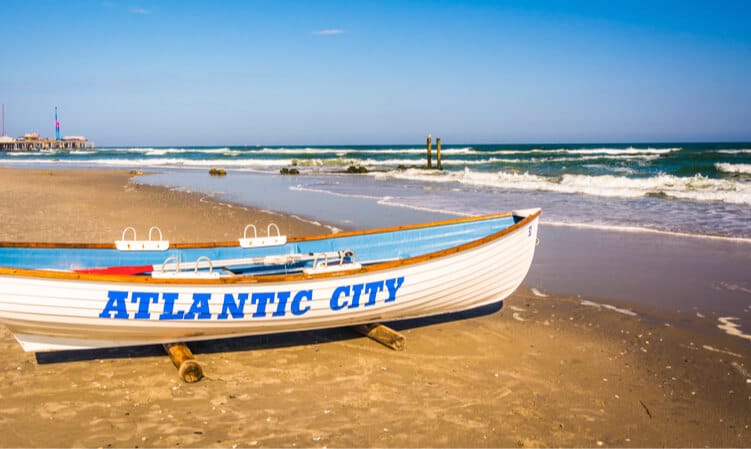The last labor strike at an Atlantic City casino ended disastrously for all concerned — Trump Taj Mahal shut its doors in September 2016, with owner Carl Icahn blaming the strike for the closure and the loss of nearly 3,000 jobs. That marked the fifth of 12 casinos in the city to shutter within two years.
Six years later, the same union — Unite Here Local 54 — is poised to strike at five of the city’s nine current casinos (with Hard Rock having replaced Taj Mahal and Ocean rising from the shell of Revel).
A walkout is tentatively scheduled for Friday at industry leader Borgata and at the three Caesars Entertainment properties — Caesars, Hard Rock, and Tropicana — with a strike also threatened against Hard Rock two days later.
Bally’s and Ocean, meanwhile, have agreed to abide by whatever deals are struck elsewhere. That puts them in what union leader Bob McDevitt calls “The Green Zone” in terms of being able to continue to operate this weekend. Resorts and Golden Nugget are said to be in “The Yellow Zone” — with no deal but also no strike threat yet — with the other five facing a deadline and thus “The Red Zone.”
The industry has faced such strife before, but not in the past six years.
In August 2016, Icahn wrote an open letter to Trump Taj Mahal workers asking, “Why have they incited you, the union workers at the Taj, to destroy your jobs and your livelihood rather than accept the prior offer that we made at McDevitt’s suggestion?”
Icahn told The Associated Press at the time that he had lost nearly $100 million on the Taj Mahal over the previous 18 months after buying the casino from longtime ally Donald Trump.
“It is one thing to fund losses when a path to profitability exists,” he wrote in the letter. “But to burn tens of millions of dollars when there is no hope is just foolish. The strike has been the latest and final nail.”
The proposed deal provided fewer health benefits than offered at other casinos, which could have led to demands by other casino operators for the same deal.
Caesars — down this road before
In 2004, the union struck at seven casinos, including the Caesars Entertainment properties, which at the time were just Caesars and Bally’s. The strike lasted for all of October and into the first week of November before a deal was reached. It marked the longest strike in Atlantic City casino history.
According to the union’s research, in the month of October 2004 compared to October 2003, Caesars experienced a 19% decline in gaming revenue while Bally’s experienced a 20.5% decline.
The five casinos in the city that did not have strikes in that period all reported gaming revenue increases, which ranged from 10.3% to 40%.
In the earnings call following the strike, Caesars management stated, per the union’s report: “We estimate that the impact of that strike on our Bally’s Atlantic City and our Caesars Atlantic City properties was approximately $10 million or about $0.02 per share. … The strike ended on November 4th and we continued to feel its effect well into that month.”
The beginning of the labor strife between Local 54 and Trump Taj Mahal began in the fourth quarter of 2014, when the Trump Taj Mahal had a 26.9% decline in net revenue in contrast to the other casinos in the market, which collectively had a 15.7% increase in net revenue.
Stakes higher for seasonal resort town
The deadline of this strike is particularly perilous for the casinos, as summer months produce the strongest revenue of any given year.
In pre-pandemic 2019, $630 million in brick-and-mortar revenue flowed to the casinos in July and August, according to the New Jersey Division of Gaming Enforcement. That was almost 19% of the $3.47 billion taken in that banner year. The 2018 figures for July and August represented nearly 21% of the yearly figure of $2.90 billion.
A similar deadline in 2016 led to settlements by the union with four casinos, but not with Icahn and Trump Taj Mahal.
In 2004, the “struck” casinos remained open but without restaurant service, with executives assigned to tasks such as housekeeping. Noisy picket lines caused many would-be gamblers to stay away.
The challenge would be even more dire this summer, as the industry held a job fair in early June seeking to fill about 2,500 casino positions — more than half of them full time.
Unite Here Local 54 Atlantic City has for more than a century represented hospitality industry workers — housekeepers, bartenders, cocktail servers, cooks, bellmen, doormen, and other service jobs. With more than 10,000 members in Atlantic City and eastern Pennsylvania, Local 54 is the largest private sector union in the region.
Photo: Shutterstock









